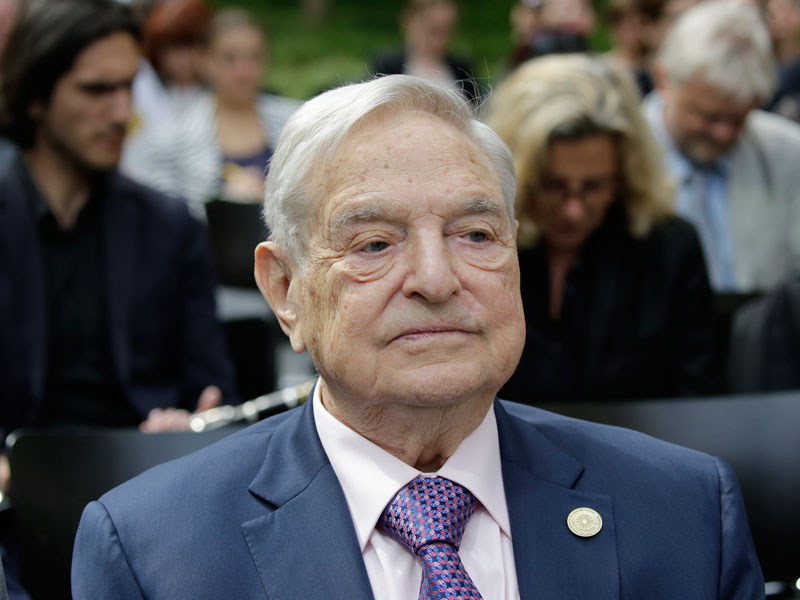Soros uses Davos speech to urge US crackdown on Chinese tech firms
George Soros has frequently used his speech at the World Economic Forum as a platform to denounce those who he sees as opponents to an open society, with China in the firing line this year

Soros used his speech to warn against the nefarious influence of Chinese technology companies and to urge the US to find internal unity to counter the threat
On January 24, Hungarian-US investor and philanthropist George Soros used his annual Davos address to launch a scathing attack on Chinese President Xi Jinping. Soros labelled Xi as “the most dangerous opponent of open societies”.
Soros has long found himself at odds with populist and anti-globalist figures due to his support for liberal causes
The billionaire, known for making his fortune betting against pound sterling in 1992, has frequently used his speeches at the World Economic Forum to denounce those he sees as opponents to an open society. Soros, who founded the Open Society Foundations, has long found himself at odds with populist and anti-globalist figures due to his support for liberal causes.
In particular, Soros focused on the facial recognition systems used in China along with the superpower’s social credit system, which grades people based on their behaviour. Soros believes “the database would give Xi total control over the people”.
He added: “China isn’t the only authoritarian regime in the world, but it’s undoubtedly the wealthiest, strongest and most developed in machine learning and artificial intelligence.”
Having last year used his speech to criticise Donald Trump, Soros offered the US president some words of advice: “My present view is that instead of waging a trade war with practically the whole world, the US should focus on China. Instead of letting [the Chinese tech companies] ZTE and Huawei off lightly, it needs to crack down on them.”
However, the Budapest-born investor could not avoid taking a swipe at Trump. “Regrettably, Trump seems to be following a different course: make concessions to China and declare victory while renewing his attacks on US allies. This is liable to undermine the US policy objective of curbing China’s abuses and excesses.”
Earlier in the conference, Huawei chairman Liang Hua warned that he would shift his business to nations “where we are welcomed”. The Chinese tech giant has had a challenging few months that have strained relations with a number of western governments. In December, Meng Wanzhou, the daughter of Huawei’s founder, was arrested in Canada as part of a US extradition request.
Huawei, which is developing its own 5G technology, has already been blocked by governments in the US, New Zealand and Australia, with others (such as Germany) also considering a ban. While the company faces an uncertain future in the West, it is reported that more than 20 other countries have signed 5G commercial contracts with the firm.
Events at Davos this year have highlighted the growing tensions between China and the West. Although issues surrounding trade continue to be a focal point for disagreements, it is technology that is increasingly driving a wedge between Xi Jinping’s government and the rest of the world.













